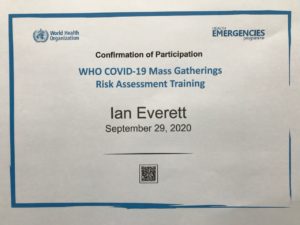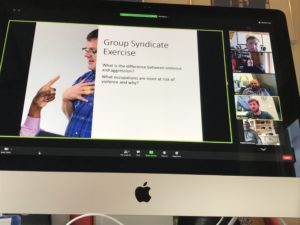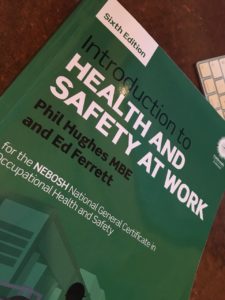Where there is a will there is a way !
Posted by Ian Everett on Friday Oct 30, 2020 Under UncategorizedWhere there is a will there is a way.
This month a revision of business cards to update the latest qualification passed for Occupational Health and Safety from Nebosh.
However it is sad to say that all that training & experience is currently mothballed for live events, conferences and exhibitions.
I am always actively seeking how we transfer our skills between business sectors that are currently working and this could be the key to creating some earning potential while we tentatively wait for our industry to re-start face to face meetings and events.
Film and TV are continuing by implementing additional control measures to guard against Covid-19. We have been assisting STV/BBC on the Antiques Road Trip on location shoots by looking after a 1964 Rolls Royce used in the highlands of Scotland.
The car was modified with a central dividing Perspex screen so the experts in the car didn’t have to wear masks while being filmed driving the car.
Even the crew van which carried the film crew had plastic sheet dividers between rows of seats and separating the driver from the front seat passenger, hand wipes and masks used for all who were in transit which meant travel was carried out safely.
Great to see the results of the drone camera shots that were recorded too, drone images have really added a new dimension to the story being told particularly when the season is autumn with the trees the colours they are at this time of year.

We really need some brave clients to kick start face to face meetings – to embrace the control measures that can be put in place for social distancing so that staff and customers can come together to interact and feel the connection and commitment of business when done face to face. There are test events being held in Singapore and I am looking on with interest as to the findings when completed. We are also working on costings for an event in June next year – it seems a long way off – maybe we will be in more positive times for our industry by then.
Where there is a will there is a way.












